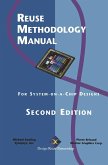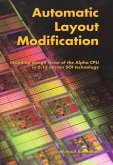Field-programmable gate arrays (FPGAs), which are pre-fabricated, programmable digital integrated circuits (ICs), provide easy access to state-of-the-art integrated circuit process technology, and in doing so, democratize this technology of our time. This book is about comparing the qualities of FPGA - their speed performance, area and power consumption, against custom-fabricated ICs, and exploring ways of mitigating their de ciencies. This work began as a question that many have asked, and few had the resources to answer - how much worse is an FPGA compared to a custom-designed chip? As we dealt with that question, we found that it was far more dif cult to answer than we anticipated, but that the results were rich basic insights on fundamental understandings of FPGA architecture. It also encouraged us to nd ways to leverage those insights to seek ways to make FPGA technology better, which is what the second half of the book is about. While the question "How much worse is an FPGAthan an ASIC?" has been a constant sub-theme of all research on FPGAs, it was posed most directly, some time around May 2004, by Professor Abbas El Gamal from Stanford University to us - he was working on a 3D FPGA, and was wondering if any real measurements had been made in this kind of comparison. Shortly thereafter we took it up and tried to answer in a serious way.
Bitte wählen Sie Ihr Anliegen aus.
Rechnungen
Retourenschein anfordern
Bestellstatus
Storno








